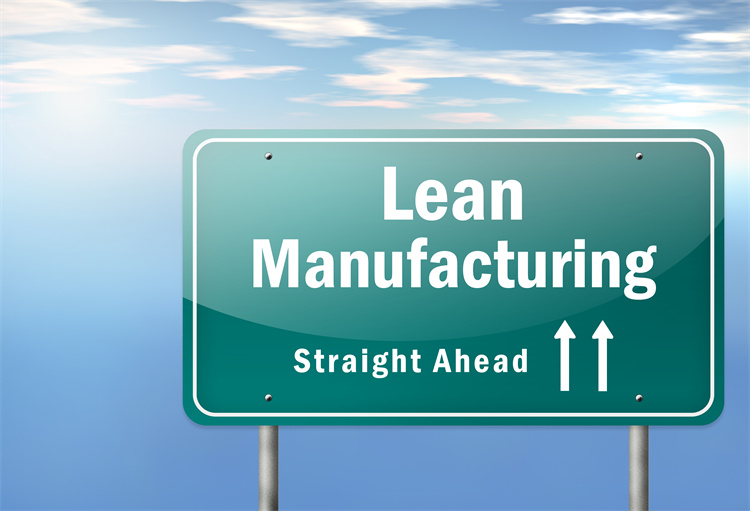Lean Supply Chain Management: Key Strategies

Lean supply chain management focuses on maximizing efficiency and minimizing waste in the supply chain process. Embracing lean principles can significantly benefit organizations by reducing costs, enhancing customer service, and improving overall competitiveness. By streamlining operations and fostering collaboration among stakeholders, lean supply chain management aims to optimize value creation throughout the entire supply chain.
Understanding Lean Supply Chain Management

Definition and Core Principles
Elimination of Waste
When organizations focus on eliminating waste in their processes, they strive for efficiency and effectiveness. By identifying and removing unnecessary steps or resources that do not add value to the final product or service, companies can optimize their operations.
Continuous Improvement (Kaizen)
Continuous improvement, known as Kaizen, is a fundamental principle in lean supply chain management. It involves making incremental changes to enhance processes continually. Through this approach, businesses can adapt to evolving market demands and improve overall performance.
Just-In-Time (JIT) Production
With Just-In-Time production, enterprises aim to minimize inventory holding costs by receiving goods only as needed for the production process. This strategy requires precise coordination between suppliers and manufacturers to ensure timely delivery of materials.
Historical Context and Evolution
Origins in Lean Manufacturing
The concept of lean supply chain management traces back to its roots in lean manufacturing practices pioneered by Toyota. By implementing techniques like Kanban and JIT, Toyota revolutionized the industry's approach to efficiency.
Transition to Supply Chain Management
Over time, lean principles transitioned from manufacturing to supply chain management. This evolution expanded the focus beyond individual processes to encompass the entire network of activities involved in delivering products or services.
Benefits of Lean Supply Chain Management
Cost Reduction
Lower Inventory Costs
Implementing lean supply chain practices can lead to reduced inventory levels, minimizing storage expenses and capital tied up in unsold products. By optimizing the flow of materials and information, organizations can enhance operational efficiency and responsiveness to customer demands.
Reduced Operational Expenses
Lean supply chain management focuses on streamlining processes to eliminate unnecessary costs associated with excess resources or inefficient workflows. This approach enables companies to operate more effectively, reducing overall expenses while maintaining high-quality standards.
Improved Efficiency
Faster Production Cycles
By adopting lean supply chain strategies, businesses can accelerate production cycles through synchronized operations and timely decision-making. This enhanced efficiency allows for quicker response times to market changes and customer needs, ultimately driving competitive advantage.
Enhanced Workflow
Efficiency gains from lean practices translate into improved workflow management across the entire supply chain. Through optimized processes and clear communication channels, organizations can minimize delays, errors, and disruptions, ensuring a smooth and continuous flow of goods and services.
Enhanced Customer Satisfaction
Better Quality Control
One of the key benefits of lean supply chain management is the focus on quality control throughout every stage of the production process. By emphasizing defect prevention and continuous improvement, companies can deliver products that meet or exceed customer expectations consistently.
Timely Deliveries
Efficient logistics and inventory management under a lean supply chain framework enable organizations to fulfill orders promptly and accurately. By aligning production schedules with demand forecasts and optimizing distribution networks, companies can ensure on-time deliveries, enhancing customer satisfaction levels.
Key Strategies for Implementing Lean Supply Chain Management

Value Stream Mapping
Identifying Value-Added Activities
In lean supply chain management, identifying value-added activities is crucial. By pinpointing processes that directly contribute to the final product or service, organizations can streamline operations and enhance overall efficiency. This strategic approach enables companies to focus resources on tasks that bring tangible value to customers, eliminating unnecessary steps that do not align with their objectives.
Eliminating Non-Value-Added Activities
The elimination of non-value-added activities is a fundamental principle in lean supply chain management. By removing tasks that do not contribute to the end product's quality or customer satisfaction, businesses can reduce waste and optimize resource utilization. This strategy empowers organizations to operate more effectively, allocating time and effort towards activities that drive value creation and competitive advantage.
Supplier Integration
Collaborative Planning
Supplier integration through collaborative planning is essential for lean supply chain success. By fostering strong partnerships with suppliers, organizations can synchronize production schedules, improve inventory management, and enhance overall supply chain visibility. Collaborative planning enables seamless coordination between stakeholders, leading to efficient resource allocation and timely responses to market demands.
Long-Term Partnerships
Building long-term partnerships with suppliers is a key strategy in lean supply chain management. Establishing trust-based relationships allows for shared goals, continuous improvement initiatives, and mutual benefits. Long-term partnerships foster innovation, reliability, and flexibility within the supply chain network, promoting sustainability and resilience in dynamic business environments.
Demand Forecasting
Accurate Data Analysis
Accurate data analysis plays a pivotal role in effective demand forecasting within lean supply chains. By leveraging advanced analytics tools and technologies, organizations can interpret market trends, customer preferences, and demand fluctuations with precision. Data-driven insights enable proactive decision-making, optimal inventory levels, and responsive strategies to meet changing consumer needs.
Responsive Supply Chain Adjustments
In lean supply chain management, responsiveness is key to adapting swiftly to market dynamics. By implementing agile processes and flexible systems, companies can make rapid adjustments based on real-time data insights. Responsive supply chain adjustments empower organizations to optimize production capacities, minimize lead times, and maintain high service levels even amidst unpredictable market conditions.
Inventory Management
Just-In-Time Inventory
Lean supply chain management emphasizes the strategic use of Just-In-Time inventory to optimize operational efficiency and minimize holding costs. By receiving goods precisely when needed, organizations can reduce excess inventory levels and enhance responsiveness to customer demands. This approach requires meticulous coordination between suppliers and manufacturers to ensure seamless production processes.
Kanban Systems
Implementing Kanban systems is a key strategy in lean supply chain management for visualizing workflow and enhancing production control. By using visual cues like cards or signals, companies can track inventory levels, monitor work progress, and facilitate timely replenishment of materials. Kanban systems promote transparency, streamline operations, and support continuous improvement initiatives throughout the supply chain.
Recapping the key strategies discussed is vital for implementing lean supply chain management effectively. Understanding the significance of lean practices in today's market can drive organizational success and competitiveness. Embracing lean principles not only reduces costs but also enhances customer satisfaction. It is crucial to start with small changes and gradually scale up operations to achieve sustainable growth.
See Also
Unveiling 5 Cutting-Edge Supply Chain Optimization Strategies
Ensuring Success: Applying Leading Supply Chain Optimization Approaches
Revolutionizing Supply Chain Management with Cloud-Based Solutions
Becoming a Risk Management Expert in Supply Chains: Proven Advice
Navigating the Path to Manufacturing Excellence: Essential Tactics
